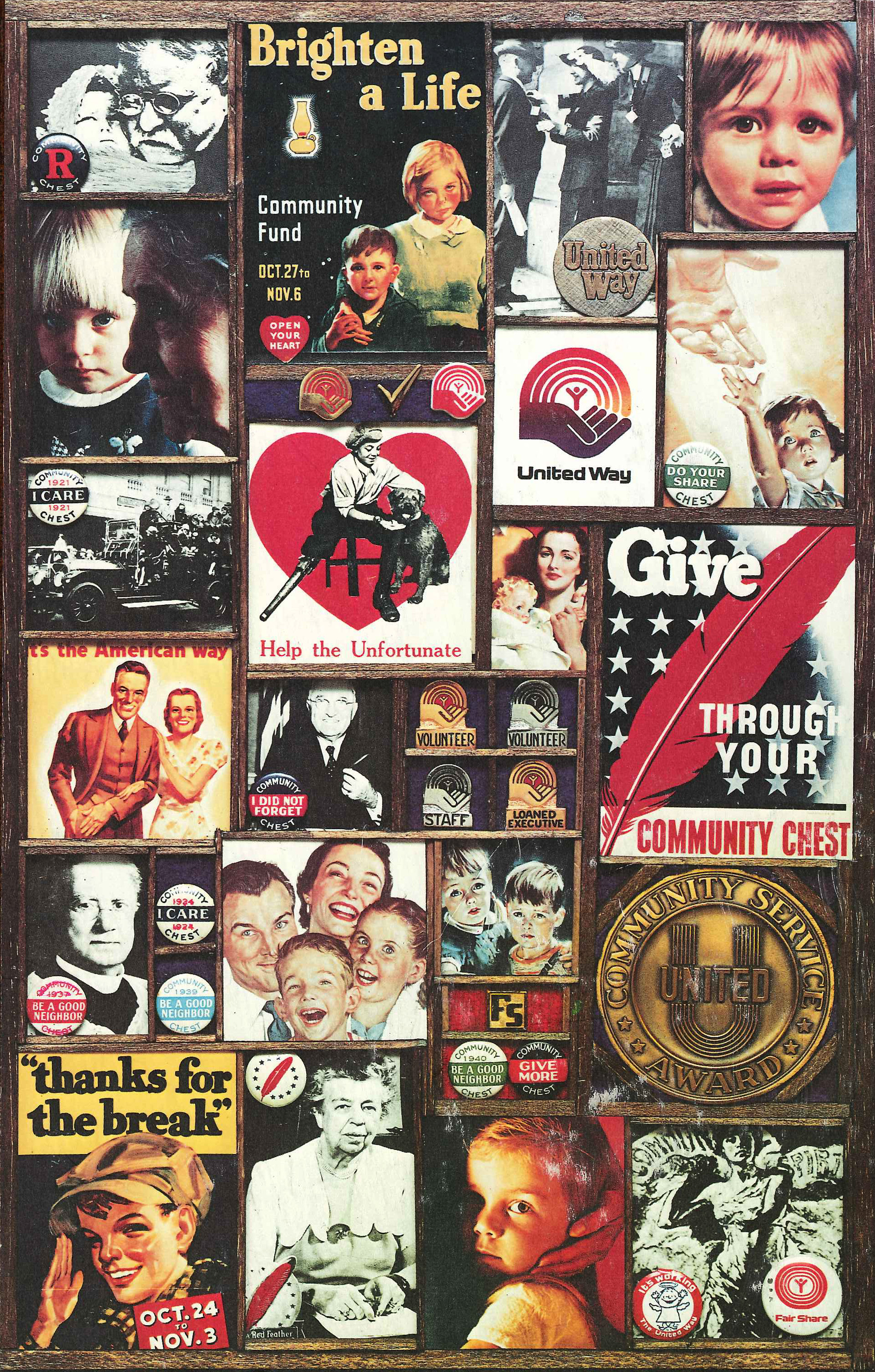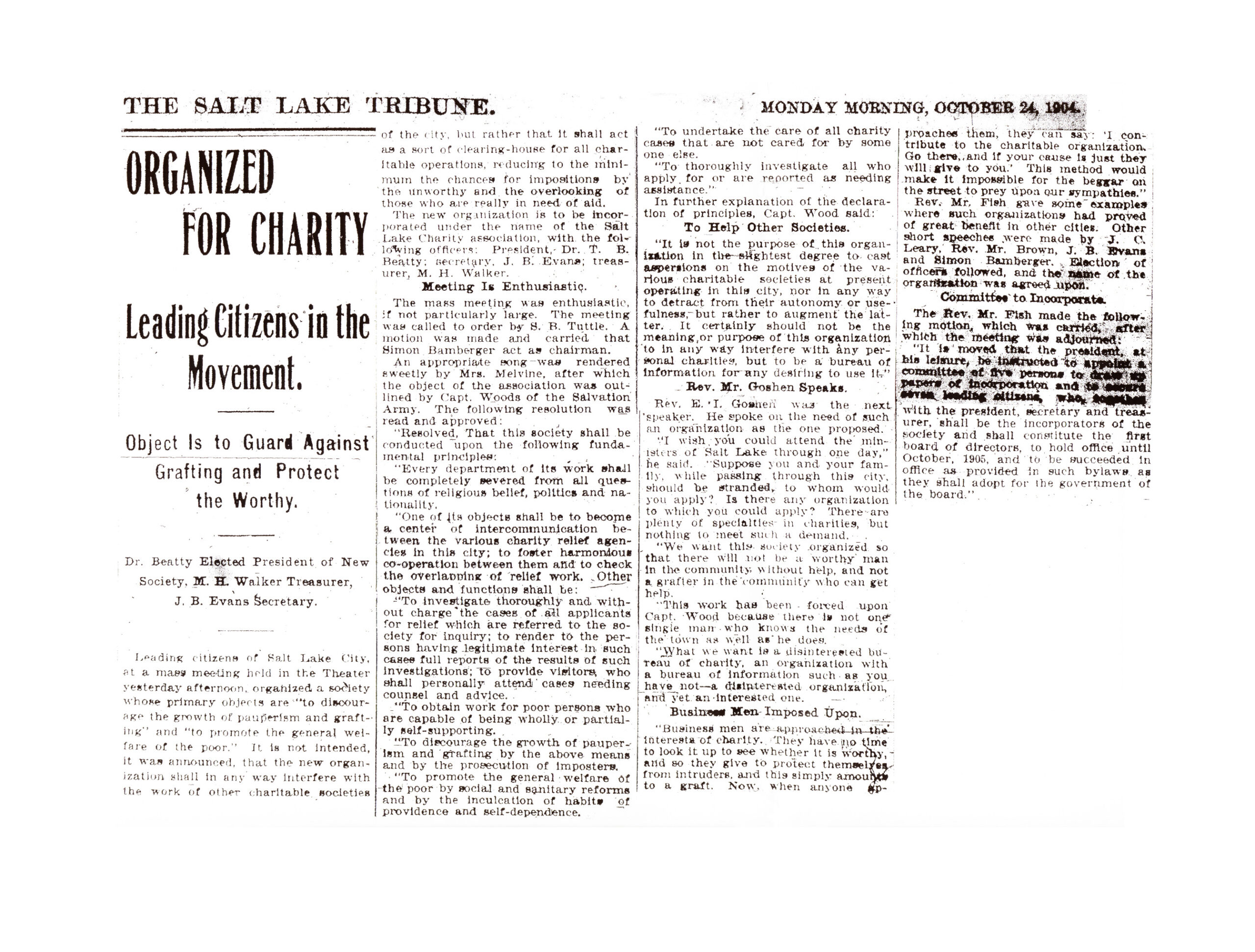VP of Marketing and Communications
Today’s United Way of Salt Lake began over 100 years ago when a group of Salt Lake visionaries, called together by Reverent Elmer I. Goshen of the First Congregational Church, organized a society whose primary objectives were to discourage the growth of pauperism and grafting and to promote the general welfare of the poor. Frustrated by increased and constant charitable requests and by gaps in providing relief to the needy, the society aimed to become a clearinghouse for charitable causes. Thus the Salt Lake Charity Association was organized in October of 1904. Reverend Goshen said the association would give businessmen the ability to make one donation to an organization that will ensure “there will not be a worthy man in the community without help, and not a grafter in the community who can get help,” Organized for Charity, Leading Citizens in the Movement, The Salt Lake Tribune, 1904.
Over the past century, United Way has undergone many name changes, from the Salt Lake Charity Association, to the United Fund, to the United Way of Salt Lake. Despite these changes, United Way has continued to function as an invaluable leader and partner in creating lasting changes in community conditions. United Way of Salt Lake still operates under fundamental principles outlined a century ago which include:
- To be a bureau of information for the community
- To foster communication and harmonious cooperation between nonprofits and the broader community
- To check the overlapping of relief work
- To function without questioning of religious or political beliefs and nationality
While we remain true to our fundamental principles, we know that in order to serve the community we also must embrace change as society changes and as issues facing children and families become increasingly complex. This past year has been one of tremendous growth and transformation for United Way of Salt Lake. As we transformed our organization and adopted a Collective Impact approach to community problem solving, we learned many lessons from our history:
- We know that that issues today, although more complex, are very much the same as they were one hundred years ago. We must continue to focus on breaking down barriers for families to break the cycles of poverty, lack of education, poor health, and crime so that children and families have the same chance as everyone else to succeed in school and life.
- We have learned that there are many great organizations doing amazing things, but together we can make a more significant impact on the lives of children and families. One organization working in isolation alone cannot solve our communities’ problems, but dozens of partners working across community sector (businesses, foundations, schools, churches, and nonprofits together) can change the odds for entire communities.
- We have learned that research and data is the key to ensuring results. We must continue to be a “bureau of information for the community” and track and report on our progress and continuously alter the way we address problems. This takes innovation and courage. It’s not easy to admit when something isn’t working and change is sometimes hard. But it is the only way to know if we are truly making a difference.
- We know that everyone has a role to play. No matter how much time an individual has to engage in the community, every minute counts toward making a difference in someone’s life. We can all be the change. Beyond giving, individuals can lend their voice as advocates for change, and their time as volunteers.

As we look back, we feel very proud of our strong history. As one of the first established nonprofit organizations in Salt Lake City, we know we have a huge responsibility to continue to serve the community and lead social change efforts. We feel very fortunate that we have caring, dedicated, and compassionate champions of our work who generously give their time, talent, and resources to advance the education, income stability, and health of our neighborhoods. We feel so honored to work side by side with so many individuals and organizations that work to improve lives and build a stronger community for us all.
[slideshow]


